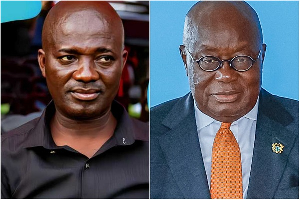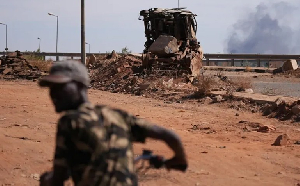Tullow Ghana Limited and its partners will strictly observe their “No gas flaring” policy at the proposed Tweneboa, Enyenra and Ntomme wells, Mr Gayheart Mensah, Communication Director of the project which is also known as TEN Project, said on Wednesday.
He was speaking at a public hearing on the Environmental Impact Statement of the project organized by the Environmental Protection Agency (EPA) for Chief Executives and assembly members from the six coastal districts of the Western Region at Takoradi.
The coastal districts include the Sekondi-Takoradi Metropolis, Nzema East Municipality and the Ahanta West, Ellembele, Jomoro and Shama districts Mr Mensah said Tullow Ghana Limited and its partners for the TEN Project including Kosmos Energy, Ghana National Petroleum Company, Sabre Oil and Gas, LLC and Anadarko Petroleum Corporation, were all committed to the policy.
He said this did not mean that there would be no gas flaring at all but that gas would be flared only for operational purposes. Mr Mensah said the TEN Project will have its safety zone but this would not in any way affect fishing.
He said the zone was to protect fishermen themselves and the oil platform which was a state asset that needed to be safeguarded. Mr Mensah said piracy was on the increase in the Gulf of Guinea and boats and vessels approaching the oil platform must go through the necessary security checks.
He said the safety zone will be constantly monitored and regular consultation would be held with fishermen about the zone to maintain peaceful and cordial relations.
Mr Mensah said the best technology would be employed to prevent and manage oil spillage and mitigation measures such as Emergency Response and Oil Spillage Contingency Plans had been formulated.
He said Tullow Ghana Limited and the partners believed in safety and facilities had been designed with the “Industry Best Practices” in line with the United Kingdom Offshore Installation Safety Case Regulation of 2005.
Business News of Thursday, 21 November 2013
Source: GNA
No gas flaring policy to be observed at TEN Project
Entertainment












